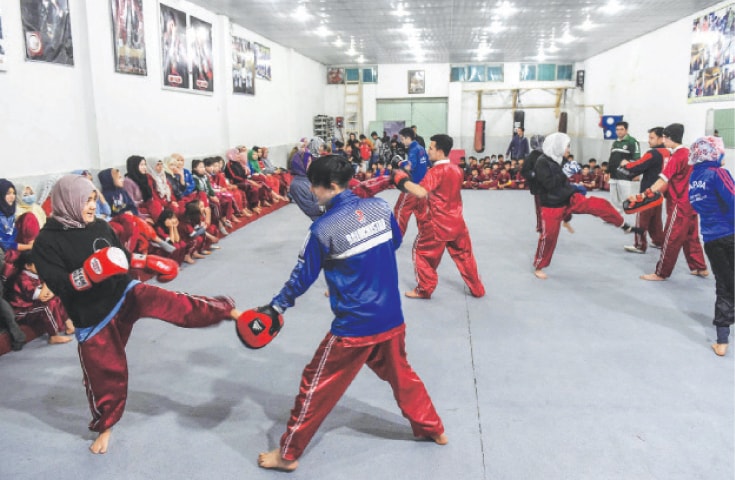
QUETTA: Hundreds of Hazara women are learning how to deliver side kicks and elbow blows as martial arts boom within the marginalised community.
Shia Hazaras have faced decades of sectarian violence in Quetta, living in two enclaves cordoned off by checkpoints and armed guards to protect them.
Women must also contend with routine harassment from men, with groping commonplace in crowded markets or public transport.
“We can’t stop bomb blasts with karate, but with self-defence, I have learnt to feel confident,” 20-year-old Nargis Batool said. “Everyone here knows that I am going to the club. Nobody dares say anything to me while I am out.”
According to one student, they can’t stop blasts with karate, but with self-defence they’ve learnt to feel confident
Up to 4,000 people are attending regular classes in more than 25 clubs in Balochistan, according to Ishaq Ali, head of the Balochistan Wushu Kung Fu Association, which oversees the sport.
The city’s two largest academies, which train around 250 people each, told AFP the majority of their students were young Hazara women.
Many of them go on to earn money from the sport, taking part in frequent competitions.
It is still unusual for women to play sport in Pakistan where families often forbid it, but martial arts teacher Fida Hussain Kazmi says exceptions are being made.
“In general, women cannot exercise in our society... but for the sake of self-defence and her family, they are being allowed.”
The uptake is also credited to national champions Nargis Hazara and Kulsoom Hazara, who have won medals in international competitions.
Kazmi says he has trained hundreds of women over the years, after learning the sport from a Chinese master in Lahore.
The 41-year-old offers two hours of training six days a week for 500 rupees but gives free classes to women who have lost a relative to militant violence.
“The Hazara community is facing many problems... but with karate we can begin to feel safe,” said 18-year-old student Syeda Qubra, whose brother was killed in a bomb blast in 2013.
Published in Dawn, April 11th, 2021













































Dear visitor, the comments section is undergoing an overhaul and will return soon.